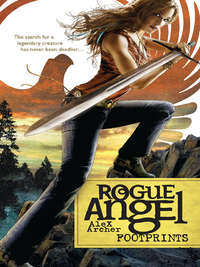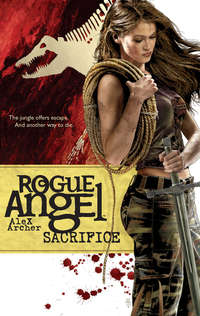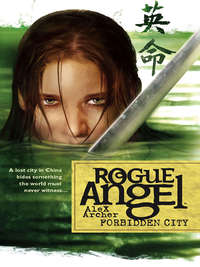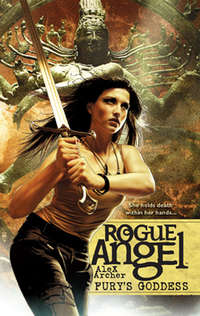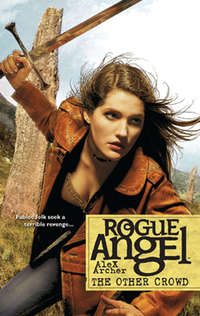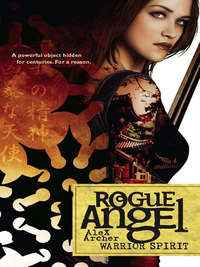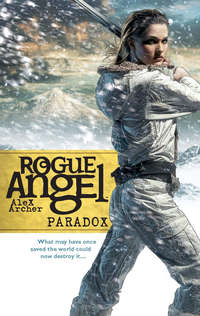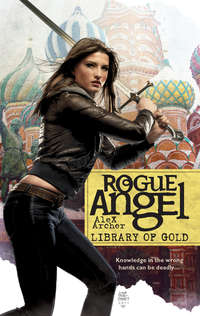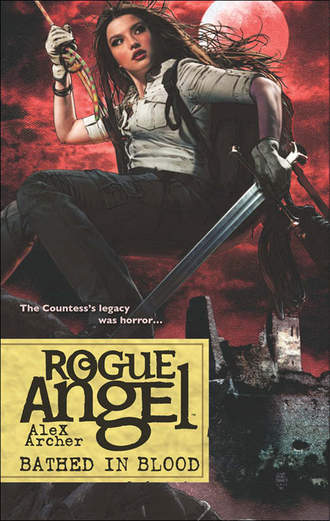
Полная версия
Bathed In Blood
Elizabeth herself was not on trial; she remained at Csejte Castle under house arrest, guarded by ten of his most trusted men. It had taken considerable effort on his part to convince King Matthias that putting a member of the upper nobility on trial would serve little purpose. Báthory came from a wealthy and influential family; angering them by trying and executing her, which was precisely what Matthias wanted to happen, would have caused no end of difficulties. Thurzó had hoped to convince the king that Elizabeth should be spirited away to a nunnery for the remainder of her days, but that possibility became less and less likely as word of Báthory’s involvement in the atrocities quickly spread.
Just the day before a journal was produced as evidence by one of the maids, listing six hundred and fifty victims who’d died by Elizabeth’s hand. Thurzó hadn’t seen it himself, so he couldn’t vouch for its authenticity, but at this point it really didn’t matter. Elizabeth was responsible for killing young women and stealing their blood. Thurzó had witnessed her crimes firsthand.
Commotion spread through the courtroom below, breaking into Thurzó’s thoughts. Leaning over the banister, he could see that Royal Supreme Court Judge Theodosius Syrmiensis was returning to his seat while his twenty co-judges took their places in the judges’ box.
Thurzó felt his pulse race; a verdict must have been reached.
Judge Syrmiensis sat down and waited for the wardens to restore order to the room. When all was quiet, he faced the defendants.
“Dorotya Semtész, Ilona Jó, Katarína Benická and János Fickó, this court finds you guilty of eighty counts of murder.”
A roar went up in the courtroom, and the judge had to wait until the wardens could quiet everyone a second time.
“Defendants Semtész, Jó and Fickó shall be put to death, sentence to be carried out immediately. Defendant Benická is sentenced to life imprisonment. The court has spoken.”
Commotion erupted again, but Thurzó had lost interest. The verdict was exactly what he’d predicated; Benická had been bullied by the others and therefore deserved a lesser sentence, an opinion he had stressed during his own testimony a few days earlier.
Justice had been served.
A memory of Elizabeth rising out of the pool of blood reminded him that one aspect of this whole mess still needed to be resolved. Thankfully the verdict would give him the opportunity to see the king and plead his case again.
Perhaps this time the king might listen...
Forty minutes later he was ushered into the king’s meeting chamber, where he found Elizabeth’s eldest son, Paul, already in conference with His Majesty.
“Ah, welcome, Thurzó,” the king said when he arrived. “How goes the trial?”
“Judge Syrmiensis returned a guilty verdict less than an hour ago. The three sentenced to death have little time left in this world.”
“And thank God for that,” the king said with a grim expression. “A nasty business all around.”
Thurzó glanced at Paul, but the other man wouldn’t meet his eye. A tremor of concern shook Thurzó. Had Paul been negotiating with the king behind his back?
Thurzó suspected he had, and the king’s next words confirmed it.
“Young Báthory has a rather unique answer to our other problem.”
“Is that so?” Thurzó replied, glancing at Paul one last time—still no response—before giving his full attention to the king.
“You made it clear that a public trial and execution of Countess Báthory would be a mistake.”
“Yes, I have and...”
The king held up a hand, silencing him.
“I happen to agree with you. As does the countess’s heir.”
This time Paul met Thurzó’s gaze and nodded briefly before looking away again.
“We cannot, however, allow the countess’s monstrous actions to continue.”
Here it comes, Thurzó thought.
“I have agreed to grant Countess Báthory my pardon and absolution for the crimes she has committed against my subjects. In return, her son will consider my debt to the Báthory family repaid in full.”
Thurzó knew the family had loaned the king considerable amounts over the past several years. But Countess Báthory controlled that debt, not Paul. And she would continue to control it until her death. Then, and only then, would control pass to her son.
The king wasn’t finished, however.
“Paul agrees that the countess must pay for her crimes. It is only just. To that end he has suggested that she be imprisoned within her suite of rooms inside Csejte Castle, there to remain until she passes from this earth. Since she would be unable to carry out the myriad duties her position as head of the Báthory family requires, I would have no choice but to declare her legally dead and pass control of her estates to her heir.”
Matthias and young Báthory smiled at each other, and Thurzó knew in that moment it was already decided. The king wanted his debt excused and Elizabeth’s son wanted her out of the way. The solution was elegant and simple. Everybody would win.
Everybody, that was, but Elizabeth.
At least she’ll be alive, he told himself.
Pasting on a smile, Thurzó told the king he approved of the solution.
“Good,” the king replied. “I’m putting you in charge of the masonry work.”
It took a moment for the king’s words to register. “Masonry?”
“Yes, of course. Did you think we would just guard the door?”
That was exactly what Thurzó had pictured. Post a guard, allow her to spend some time in the fresh air every day—the civilized approach.
But too late Thurzó remembered that Matthias had a cruel streak, and this was his way of getting back at the countess for holding that debt over his head.
“I want the entire suite of rooms bricked up. Doors, windows, everything! We’ll leave a few slots in the walls through which she can receive her food, and so the guards can keep an eye on her, but she will remain a prisoner—a real prisoner—until the day her vile countenance passes from this earth! Do you understand, Thurzó?”
He nodded and waited for the king to dismiss him with a toss of his head. As he moved toward the exit, one final question occurred to him.
“If I may, Your Majesty, why me?”
The king didn’t even look at him as he delivered his answer.
“You should have killed her when you had the chance, Thurzó, and saved me all this nonsense. Since you didn’t, I’m leaving it in your hands.”
And that was that. In trying to save her life, he’d ended up bringing her a fate worse than death.
Love certainly was blind.
2
Csejte Castle Present day Slovakia
Annja Creed eyed the camera for a moment, and then stepped forward to adjust the angle of the lens an inch or so to the left. Satisfied, she nodded to herself, moved back to her former position and keyed the remote in her left hand.
“As you can see, behind me lies the ruins of Csejte Castle, home to one of the most beautiful, and most villainous, women who ever lived—the Blood Countess herself, Elizabeth Báthory.”
A shake of her head, a double click of the remote to stop and restart the recording, and then she tried again.
“The crumbling walls you see behind me are the ruins of Csejte Castle, once home to Elizabeth Báthory, a woman some consider one of history’s greatest monst... Gah!”
She stopped the recording and turned away in frustration. Creating the opening to the show should have been a piece of cake. She’d done hundreds of such takes during her time as cohost of Chasing History’s Monsters, the cable television show she’d worked for these past few years. Yes, normally she would’ve worked with a cameraman and wouldn’t have to worry about framing and proper exposure, but she was a steady hand at this by now and probably could have shot, edited and produced the entire show on her own.
Which was exactly what she was intending to do for this one.
The whole thing was a bit of a lark, she had to admit. She’d been with her regular crew in the Czech Republic, filming an episode on Faust and the mysterious creatures that still supposedly haunt his house, but the shoot had wrapped early. With a few extra days suddenly on hand, Annja decided to make the jaunt across the border into Slovakia to do some rock climbing and maybe even visit Báthory’s legendary castle.
She’d caught a flight into Bratislava, took a train northeast into Košice and drove the short distance to the small village of Višňové. Annja could see the castle’s ruins on the hill above the village as she’d driven in, and that was when the idea had struck. She’d checked into her hotel, fired up her laptop and searched the database.
For some strange reason, Chasing History’s Monsters had never done an episode on the world’s most notorious serial killer, Countess Báthory herself.
Don’t look a gift horse in the mouth, Annja, she’d reminded herself, and decided then and there to see what she could put together on her own. Selling a complete episode—shot, cut and edited—to her producer, Doug Morrell, would net her some extra cash and give him an episode he could deliver to his own bosses seemingly overnight. That would make him look good, and he could even hold on to it for an emergency situation when some other episode’s filming went south. It was a win-win situation.
She was pretty certain Doug would take the show; the subject matter was right up his alley. It would make a great episode.
If she could get the opening right, that was.
Annja turned and surveyed the ruin of the castle. There really wasn’t much to look at, truth be told. A few sets of crumbling walls, an extended tower or two, but not much more than that. The castle had been sacked and plundered by Ferenc II Rákóczi in 1708 as part of the Hungarian uprising against the Hapsburgs. It had been left to fall into ruin, and a ruin it had become.
And yet something still drew people here.
She knew what it was, of course.
The lure of history.
Annja understood that; she’d felt that same thrill, that same connection to the past, every single time she’d started an expedition or been involved in an archaeological dig. It was the reason she’d pursued her chosen career—as an archaeologist, not as a television host—in the first place. To reach out and touch something from the past, to hold a piece of history in your hands and wonder about the person who’d last held that object hundreds, perhaps even thousands, of years before... Yes, archaeology had a way of getting down deep into a person’s soul.
But in this case it was more than that.
It wasn’t just the lure of history.
It was the legend of the Blood Countess.
The idea of standing on the same stones where the notorious serial killer had once lived held a kind of eerie fascination for many people. The fact that it all happened back in the 1600s didn’t make any difference; as with Vlad Dracul, the Wallachian prince who was generally recognized as the inspiration for Bram Stoker’s Dracula, the legend of Elizabeth Báthory had grown over the ages.
However, Annja wanted to expose the history behind it all. No doubt Doug would prefer her to ignore the high road and feature reenactments of the beautiful Báthory climbing naked out of a pool of blood. But that simply wasn’t Annja’s style.
If she was going to do a show about Báthory, she was going to tell the truth.
Or at least as much of the truth as anyone knew.
Annja stepped to the edge of the escarpment and looked out across the forested hills and rocky crags. The late-afternoon sun lit everything with a patina of gold as it sank toward the horizon. She imagined the countess had done the same thing many times, though with her own deeply tanned skin, long auburn hair and amber-green eyes, there was little chance of anyone mistaking Annja for the pale, dark-haired woman who had terrorized this land for nearly two decades.
Never mind my baseball cap, Annja thought with a laugh as she reached up and adjusted the brim to keep the sun out of her eyes. It was a nice day, warm and clear, and she could see for miles. It would get colder later that night, but for now she was perfectly comfortable in her long-sleeved shirt, shorts and hiking boots. It was her usual dig attire, and fans of the show expected to see her outfitted in the same. She didn’t mind; it was what she would have worn anyway, show or not.
As she turned away from the overlook, she reviewed what she knew about the countess.
Báthory had been born in Hungary in 1560. Both an uncle on her father’s side and her maternal grandfather had been princes of Transylvania. She was also cousin to Stefan Báthory, the king of Poland and duke of Transylvania. Elizabeth was raised on the family estate in Nyírbátor and taught to speak multiple languages, including Hungarian, Latin and Greek.
By all evidence an extremely intelligent woman.
Engaged to Ferenc Nádasdy, a Hungarian nobleman, at age twelve, Elizabeth became pregnant after an affair with one of the palace servants the following year. She gave birth in secret, but not before Nádasdy had the servant castrated and thrown to the dogs. The child, a daughter, was quickly disowned, and Ferenc and Elizabeth were married in May of 1575 when she was fourteen and a half years old. His wedding gift to his young bride was Csejte Castle and the territory surrounding it.
Fourteen and a half? Annja couldn’t imagine getting married now, in her midtwenties, never mind a decade or so ago. She knew it was the custom of the time, but that didn’t make it any easier to swallow. Especially given what happened next.
In 1578 Báthory’s husband was appointed head of the Hungarian troops and led them to war against the Ottomans. In his absence, Elizabeth was responsible for the care and upkeep of the castle and its environs, including the country house of the same name and the seventeen villages nearby.
Fertile hunting grounds for appetites that grew harsher as the years went by.
Annja knew the countess had gotten bored with castle life. She and her husband wrote letters back and forth, as any married couple might do, but Elizabeth and Ferenc talked about methods of torture to be used on the Turkish prisoners. She would suggest new techniques and her husband would report the results back to her; some of those letters were still stored among the Nádasdy family documents in the National Archives of Hungary.
Soon the countess was trying out techniques of her own on her staff, all peasants—and therefore of no consequence in her view—from the surrounding villages. Severe whippings and beatings were frequent, often for the slightest infractions.
As time went on, more girls were lured to the castle under pretense of working for the countess, and then those girls started to disappear. Unfortunately, there wasn’t much the people could do about it. Báthory not only controlled the land they lived on but was related to the very authorities the villagers would’ve brought their concerns to.
What a terrible situation. Parents forced to watch as their daughters were taken from them with impunity. One of history’s monsters, indeed.
Báthory had finally paid for her crimes. The countess was imprisoned inside this very castle. She’d lived alone for four long years before dying from some unknown illness. Even the date of her death was conjecture; several plates of food had sat untouched just inside her chambers, so there was no way of knowing if she’d been dead for a few minutes or a few days when she’d been found.
That’s it! she thought. That’s the opening!
Annja rushed over to the camera, snatched up the remote and got into position. She took a few deep breaths and then stared directly at the lens as she pressed Record.
“Four hundred years ago, a woman was walled up inside the castle that now stands behind me. Her crimes were so terrible she would earn a reputation as the world’s foremost serial killer. Her name? Countess Elizabeth Báthory. Her rumored victims, six hundred and fifty in number, were all young women, and the savage way in which they were killed earned Báthory the nickname by which she is more commonly known—the Blood Countess. But was Elizabeth Báthory a monster? Or was she also a victim, caught between two sides of a titanic struggle for power that reverberates through this region today?
“Join me as we examine the reality and the myth surrounding the Blood Countess, Elizabeth Báthory, here on Chasing History’s Monsters.”
3
Annja spent another hour shooting video of the castle ruins, footage she could splice in during the editing phase, and then packed up her gear. By the time she’d loaded the rented four-wheel-drive vehicle, the sun was just about down.
She drove through the small village of Čachtice, home to some three thousand residents, and headed for her hotel in nearby Nové Mesto nad Váhom, a town about five miles northeast of Čachtice.
Annja had been driving for less than five minutes when her headlights picked up a figure standing by the side of the road, frantically waving his or her arms. As she drew closer she could see it was a young woman of about twenty-five, dressed in hiker’s boots and jeans and wearing a canvas jacket against the chilly evening. Behind her, Annja could see a backpack sitting on the ground.
Her first thought was hitchhiker, but then she caught sight of the young woman’s face and realized something was terribly wrong. She pulled to the side of the road about ten yards away, turned off the engine and got out.
“Are you all right?” she called from her position by the driver’s door.
The woman shouted something back at her. Annja recognized the language as Hungarian, or Magyar as it was known here, but it wasn’t related to any of the half dozen languages she did speak, so there was no chance of her getting the gist of what was being said. The woman’s frantic hand motions spoke a language of their own, however.
Come here! Quickly!
Most people would’ve been concerned at this point. A dark road with no one around made the perfect place for an ambush, and a woman driving alone in a foreign country would no doubt be an attractive target. Not only that, but she had just made it easier for any would-be bandits by getting out of her vehicle.
Annja wasn’t concerned. If this was a setup, she’d deal with it. She’d been in tougher situations before and had managed to extricate herself just fine. It helped that she was the bearer of Joan of Arc’s weapon, a broadsword she could pull out of where it waited for her—the otherwhere, she called it—with just a thought.
The sword had been shattered by the English commander who’d overseen Joan’s execution, the pieces scattered into the mud like so much waste. In the wake of that sundering something miraculous had occurred; the lives of the two men who had been assigned to watch over Joan, a knight named Roux and his apprentice, Garin Braden, were extended indefinitely. Both were over five hundred years old and still as hearty as they had been the morning their charge had met her fate.
Roux had set out to retrieve the pieces of the sword, and one by one they’d been reunited. Annja had been present when the very last piece had been added to the puzzle and the sword had restored itself in a flash of power that bound her and the blade together in a stunning, and rather unexpected, fashion. The sword wasn’t bound by the rules of time and space and so was available to her at any moment with just a thought. It made getting out of tight situations much easier.
The way the other woman was reacting, the obvious relief on her face that someone, anyone, had stopped to help, made Annja think that whatever this was, it wasn’t a trap.
When Annja got closer, she realized the ground had given away on the side of the road. The woman was still talking nonstop, but now she was pointing frantically into the darkness.
Annja suddenly understood what the woman wanted.
Down there. He’s fallen down there.
Annja turned around, intending to go back for a light, and the woman shrieked and rushed forward, grabbing Annja’s arm.
“Easy now, take it easy,” Annja began, but the woman wasn’t listening. She was clearly in panic mode, more than likely thinking Annja was leaving. The backpacker was talking a mile a minute, pointing into the darkness over the edge, and paying no attention to what Annja was saying.
Annja knew how to fix that, at least.
She dug in her heels, pulled her arm back sharply and yelled, “Wait!” as loudly as she could.
The sudden blast of sound broke through the woman’s panic, and she snapped her head around to stare at Annja.
Annja held up her free hand in a “take it easy” gesture. “I’m not leaving,” she said soothingly, hoping the woman understand a little English. “I’m going to get a light, so we can see.”
She mimed shining a light over the edge and looking down after it.
Understanding blossomed on the other woman’s face and she calmed down.
Annja turned and hurried over to her vehicle. Opening the rear doors, she pulled out one of the polymer cases containing the lights and carried it back to where the woman was waiting.
“I’m Annja,” she said, pointing to herself. Then she pointed at her companion and raised her eyebrows.
That, at least, the woman understood. She smiled wanly and said, “Csilla.”
“Okay, Csilla,” Annja said, “show me what’s got you so upset.” She extended her hand palm up in a sweeping gesture, the universal “after you” sign, and then followed Csilla as she hurried over the edge of the drop and pointed downward at a spot a few feet to their left.
Annja nodded and then set the case on the ground next to her. She flipped open the catch and pulled out a handheld spotlight. The light used only a single thirty-five watt HID bulb, but it generated a fifteen million candlepower light beam that was twenty-eight hundred feet long. If there was something out there, this light would find it.
She hit the switch on the top of the rig and the beam of light leaped into existence, throwing back the darkness. The brush lining the edge of the drop jumped into view, seeming larger than life in the cold light of the spot.
Csilla nodded and pointed again, more emphatically this time.
“Siet! Siet!”
Annja didn’t need to understand Hungarian to understand.
Hurry.
She did as she was told, pointing the spotlight in the direction Csilla was suggesting. Annja began to sweep the beam across the rocky slope below them.
At first she didn’t see anything but the jagged shale for which the region was known, but then she caught sight of a flash of white against the harsh gray of the stone. Slowly, carefully, she swung the beam back and found the object a second time.
It was a human hand.
Female, judging by the size and shape.
It thrust up from the slope as if it were waving to them. The hand was attached to a forearm—thank heavens!—and the arm presumably to the rest of the body, though she couldn’t see the latter. The woman was hidden by a depression in the slope.
“Hello? Can you hear me?” Annja shouted.
Silence.
She might be too injured to shout back.
“Hold on!” she called out. “I’m coming down after you!”
She thrust the spotlight into her companion’s hand and ran over to the rear of her SUV. She grabbed her climbing bag and carried it over to Csilla, who was keeping the light on the hand.
“Were you traveling together?” Annja asked as she pulled several pieces of gear, including a nylon climbing rope, out of the bag. “Did she fall?”
Csilla shook her head, but Annja wasn’t sure whether the woman didn’t understand what Annja was saying or didn’t know what had happened.
Annja pulled on a headlamp and switched it on, then grabbed the gear she’d pulled out. She looked around for a suitable spot to anchor her rope, finally selecting a tree that stood near the edge of the drop. Hurrying over, she pushed on it for a moment, testing its strength, before deciding it would do. Using a couple of slings and some carabiners, she quickly rigged an anchor and then fed the rope through it, tying the two loose ends together. She gave the rope—and the anchor—a good tug to double-check, then coiled the rope and tossed it over the edge.


